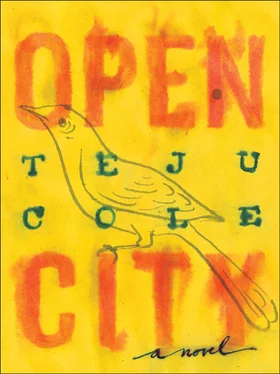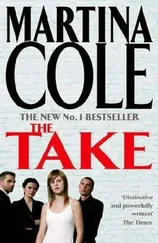But take another set of individuals, a more distant tribe, and among these the brains differ from those of the first set in some chemically and physiologically significant way. These are the mentally ill. The mad, the crazy: people who are schizophrenic, obsessive, paranoid, compulsive, sociopathic, bipolar, depressed, or some grim combination of two or more of these: these people all belong together, they ought to be classed with each other. Or so we think — and this is the rationale for the medical practice of psychiatry. If they are ill enough, they show up at the hospital, willingly or otherwise, and are given drugs, admitted willingly or otherwise. But within this tribe, it has often struck me, the differences are so profound that, really, what we are looking at is many tribes, each as distinct from the others as it is from the tribe of the normal.
In my duties as a medical school graduate and psychiatric resident, I was licensed to be the healer, and nudged those who were less normal toward some imaginary statistical mean of normalcy. I had the costume and the degree to prove it, and I had the DSM-IV at my side. My task, if I were to state it as grandly as possible, was to cure the mad. If I could not cure them, which was more often than not, I did my best to help them cope. I had struggled all through medical school not to lose sight of this grand statement, the dream that lay beneath our science and praxis. These ruminations were entirely private, of course, and one of the lessons I learned most swiftly as a medical student was that the larger picture was sacrificed, more out of habit than out of necessity, to the small detail. We were taught to distrust philosophy; our teachers favored the potent neurotransmitter, the analytical trick, the surgical intervention. Holism was looked down on by many professors, and in this the best students followed their lead.
We were all deeply sensitive to the suffering of our patients, but I was one of a tiny minority, as far as I could tell, who thought incessantly of the soul, or worried about its place in all this carefully calibrated knowledge. My instinct was for doubts and questions. The management of most cases became straightforward for me after three years of residency. How bewildering everything had been, to begin with, a great sea of unmasterable knowledge, full of tricky passes and opportunities to fail. But, as though all at once, I found that I was a competent psychiatrist. I was also by this time getting a better idea of what I might do afterward: which fellowships to apply for, from whom to seek letters of recommendation. I had gradually given up the ambition for academic practice and research, and my future seemed to be in a large, nonacademic city hospital, or perhaps a small practice in the suburbs. This was fine by me, as I had never really had the appetite for the kind of competition academia entailed.
In mid-April, our department chair left for private practice. His replacement, a transplant from Hopkins named Helena Bolt, a leading expert on ADHD, was generous and much easier to work with. Her presence made a difference to the entire department. There had been a scandal: a year previously, the chair, Professor Gregoriades, had been accused of using a derogatory term in reference to some Asian patients. The accusation had not been made publicly or formally, but from what those who discussed the story claimed, the sources were credible. Though most of us never did find out what actual word, if any, had been used, it was a bad scene, especially for the handful of Korean-American and Chinese-American interns in the program. It was a serious charge, and undoubtedly played a role in his moving to a different program. With his departure, some of the negative energy and malcontentment in the department dissipated.
Gregoriades had, in truth, never been anything but civil with me. He was a brilliant scholar with a national reputation, a finalist for a Lasker Award, a member of the American Academy of Arts and Sciences, an honoree of the American Psychiatric Association; the professional achievements said something about him distinct from his personality, something that commanded respect. In any case, I had never minded his somewhat cold manner, and had even entertained thoughts, earlier on, of getting to know him better, of working on a strategy to get into his good graces, for the possible benefit doing so might have been for my career. That was something I’d decided not to follow through on, but the idea had been there. Eminence, pedigree, connections: had I been entirely free of those concerns, I would probably not have come to Presbyterian. Still, he was of a different generation, or so it was said. He was less sensitive to the new nuances of political correctness. No doubt people would have been less sanguine about the situation had he been accused of racially abusing black students, or Jewish ones.
Professor Bolt, his replacement, was better than polite. Through her, we younger physicians got some genuine insight into what a compassionate practice might look like, twenty-five years into a university- and hospital-based career. She had a publications list several pages long, had had professional successes only a little less glittering than Gregoriades’, and was reputed to be a smart manager. But what was most apparent was that she also genuinely cared about the direct care of patients. She wanted to design policy around what we could do to improve their outcomes. The change was imperceptible at first, but by a month after Bolt’s arrival, a recurring subject in the shift room chatter was about the way our work culture in the department had changed. It was to the good. And it was especially satisfying to me, with my stubbornly held and somewhat naïve vision, as I approached the end of my training, of what psychiatry really ought to be about: provisional, hesitant, and as kind as possible.
Talking to my friend and the others in the park about residency, I had focused, as I’d had to in the context, on comic vignettes. There is a long marriage between comedy and human suffering, and mental illness, in particular, is easily played for laughs. But I had dozens of cases that would have been ill-suited for the purpose, and sometimes it is hard to shake the feeling that, all jokes aside, there really is an epidemic of sorrow sweeping our world, the full brunt of which is being borne, for now, by only a luckless few.
I READ FREUD ONLY FOR LITERARY TRUTHS. HIS SHORTCOMINGS had, after all, been so thoroughly exposed that, in the popular culture almost as much as in the profession of psychiatry, he was understood almost primarily through his critics: H. J. Eysenck had taken him to task for his psychotherapy, Popper for his science, Friedan for his attitude to women. The criticism, in general, was not unjust. So I read him, not as a professional seeking professional insight, but as I would read a novel or a poem. His work was a good counterweight to the pharmacological bias of modern practice. The historical aura was attractive, too: he had, after all, been sought out even by Mahler. The argument could be made that, even allowing for his excesses and misreadings, he illuminated psychoanalysis — which, let no one forget, was his original discovery — more vividly than would even the most meticulous of modern practitioners.
His writings on grief and loss, I found, remained useful. In Mourning and Melancholia and, later, in The Ego and the Id , Freud suggested that, in normal mourning, one internalizes the dead. The dead are fully assimilated into the living, a process he called introjection. In mourning that does not proceed normally, mourning in which something has gone wrong, this benign internalization does not happen. Instead, there’s an incorporation. The dead occupy only a part of the one who has survived; they are sectioned off, hidden in a crypt, and from this place of encryption they haunt the living. The neatness of the line we had drawn around the catastrophic events of 2001 seemed to me to correspond to this kind of sectioning off. There had been great heroism, of course, though, as the years passed, it had become clear that aspects of this heroism were overstated. There was firmness of purpose, too, in the language of the president, there was certainly political squabbling, and there was a determination to rebuild right away. But the mourning had not been completed, and the result had been the anxiety that cloaked the city.
Читать дальше












